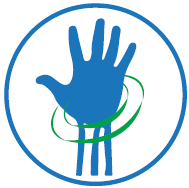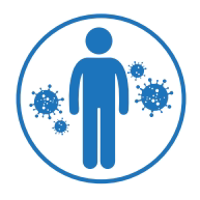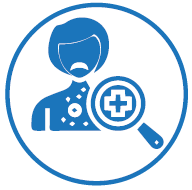ROLE OF A CAREGIVER
Psoriasis is not just a skin ailment but a long-term condition that needs continuous management. It takes a toll on people’s mental and emotional health. Psoriasis patients may be more likely to develop depression and face challenges at work due to the appearance-related stress in their lives.
About 88% of people affected with psoriasis have a poor quality of life, and they constantly need support from their friends and family.
To provide support, one can follow these tips:
1. Listen
In the eagerness to offer help, it might be tempting to give advice to the loved one. But it is equally important to patiently lend an ear when they express discomfort.
Remain present when the loved one willingly opens up about their feelings. Make them feel comfortable and safe; this is what they might need. It may also be good not to drive the conversation towards discussing a psoriasis outbreak before they choose to discuss it.
2. Involve the loved one
Psoriasis causes itchy, red patches on the skin, and is associated with heart disease, obesity, and depression. Psoriasis patients are about 1.5 times more likely to have depression than those without psoriasis.
Help them socialize by inviting them to events or asking them to simply join for a walk or evening tea. As a friend, one should provide general emotional support. Initiating a healthy talk may be all that is needed for them to feel comfortable.
3. Give other family members a break
Supporting the patient's family may improve their health and well-being. Offer help like babysitting, taking the pets for a walk,etc.
4. Maintain healthy habits
A person with psoriasis needs to maintain a healthy diet and adequate rest to manage their condition. Do not pressurize them into activities that can cause unnecessary mental stress.
5. Don't stare at the skin
Psoriasis flare-ups differ in each person, and the disease severity can be mild to severe. Some people with psoriasis only develop symptoms in hidden body areas and for others the disease may cover a greater part of their body.
One should make a conscious effort not to stare at the skin of people with psoriasis.
6. Educate children
Educate children in the family about psoriasis. Also, make them understand not to stare or comment on the affected person's red patches or scaly skin.
WHAT TO ASK THE DOCTOR?
Here are some questions one may ask a doctor; particularly, during the first consultation.
- What are the available treatment options?
- What are the benefits of starting treatment early?
- What are the most common side effects of treatment?
- What could happen if the treatment is not started/continued?
- How can one better support their loved ones manage their condition?
- Are there any alternative treatments that may help?
- How to help a psoriasis patient cope with the changes that have been brought about by the disease?
- What are the long-term complications of the disease?
- Are there any warning signs to look out for?
GLOSSARY/TERMS TO KNOW/DICTIONARY

A type of arthritis that can occur in people with psoriasis. It typically affects the large joints, especially those of the lower extremities, small joints of the fingers and toes, and can affect the spine and sacroiliac joints of the pelvis as well

A type of psoriasis found in skin folds like the armpit, groin, beneath breasts, and buttocks. It appears as shiny, smooth, red patches

Patches of scaling skin covered over sores. They commonly occur on elbows, knees, and trunk

This is the most common of all types and appears as raised, swollen, red patches with silvery, white, or red scaly skin. Commonly affected areas include the elbows, knees, lower back, and scalp

A type of ultraviolet radiation treatment (phototherapy) used for skin diseases. Also termed as photochemotherapy

A type of psoriasis that causes reddish, scaly, pus-filled bumps also called as pustules. It may require immediate medical attention

Ointments, creams, etc. that are applied to the skin

A state when psoriasis symptoms are active or worsen

A state when the disease is no longer active and the patient's condition improves

The body's defense against various germs, including different types of bacteria, viruses, and toxins

A doctor specializing in autoimmune conditions (rheumatic diseases) that affects the joint, muscle, and bone function

A doctor who is a specialist in the diagnosis and treatment of various skin conditions, including psoriasis
SOCIAL AND EMOTIONAL SUPPORT
While the loved one is getting treated for psoriasis, ensure that one finds a way to manage the stress and emotions that may take a toll on them. Approach family, friends, and support groups to get the necessary moral and emotional support. Here are some tips:
Support from family members
Close family members like parents, siblings, or children may understand a person's feelings
with psoriasis and offer help.
Some simple tips like these may help ensure all family members are on the same page:
- Help them understand the treatment options and why is it important
- Offer help like accompanying the loved one to the clinic for routine visits
- Remember that psoriasis can be stressful for the family members too. Tell them that their support matters
Support from friends
Best friends can be a great source of positivity to anyone, including a person with psoriasis. As a caregiver,
one can reassure the patient's friends that psoriasis is not contagious and there is no cure,
unlike several other common diseases. Connecting with friends can help gain self-confidence and
increase the willingness for socializing and overcoming the social stigma associated with psoriasis.
Support at workplace
- A patient with psoriasis may have to take time off from work for treatments or while dealing with the flare-ups
- Talk to the manager/ supervisor and keep them informed about the condition
- Work out a healthy, manageable treatment plan with the doctor and discuss ways to avoid psoriasis triggers
- Help them maintain a good work-life balance
- Help them plan if they must be away for a part of or full day
CARING FOR CHILDREN WITH PSORIASIS
If a child has psoriasis, a lot can be done to help them manage their symptoms and keep the skin condition from impacting their self-confidence.
Help them understand the disease
Give them books or links to websites about psoriasis
Explain that it's not their fault
Encourage them to ask questions during doctor's appointments

Talk to School Staff
Keep the class representative /teacher well informed
Request other staff to watch for problems like teasing or bullying
Set up a good working relationship with school officials so that they can help the child during a flare-up

CARING FOR SELF
In the process to support their loved one, caregivers may often forget about themselves.
But one should remember that caregiving can be best done if the carer himself/herself is healthy mentally, emotionally and physically.
Some of the following tips that can help include:




